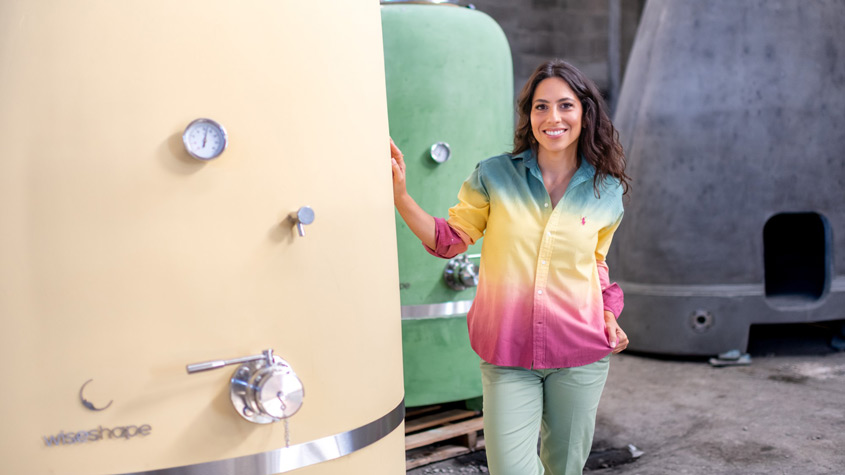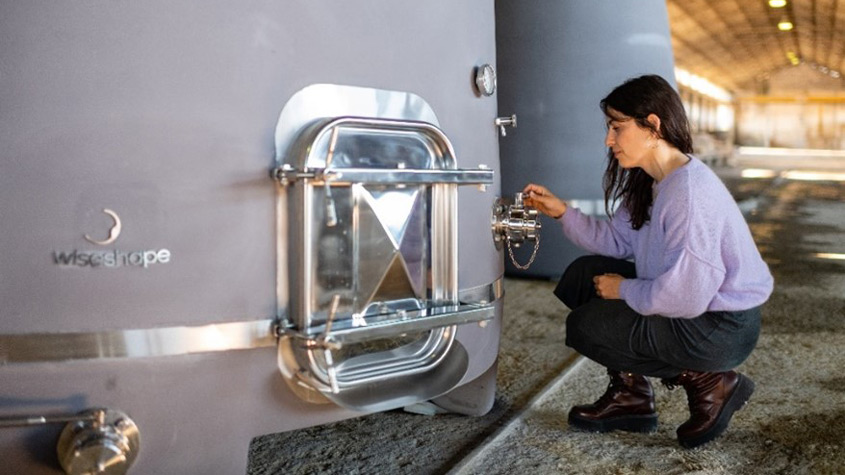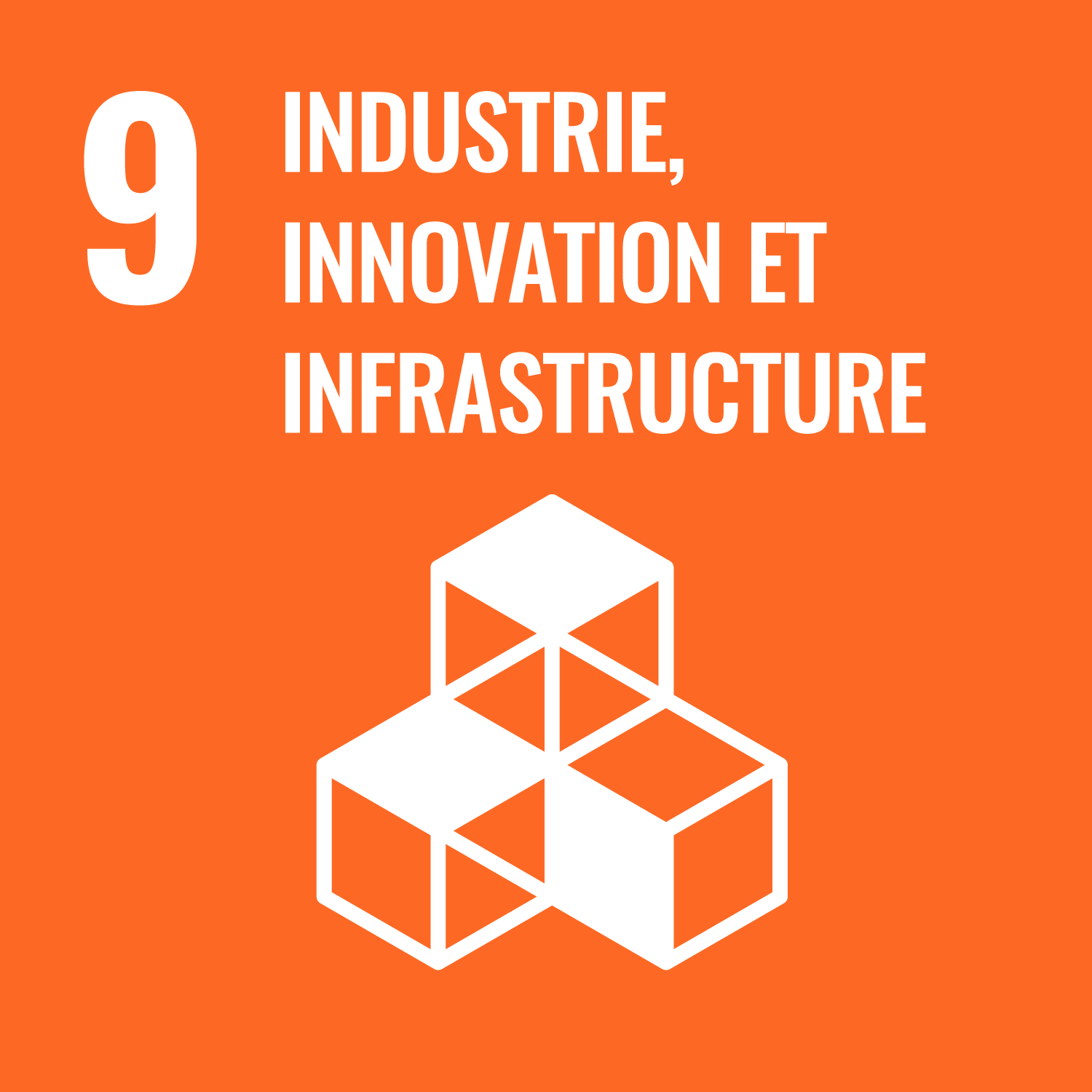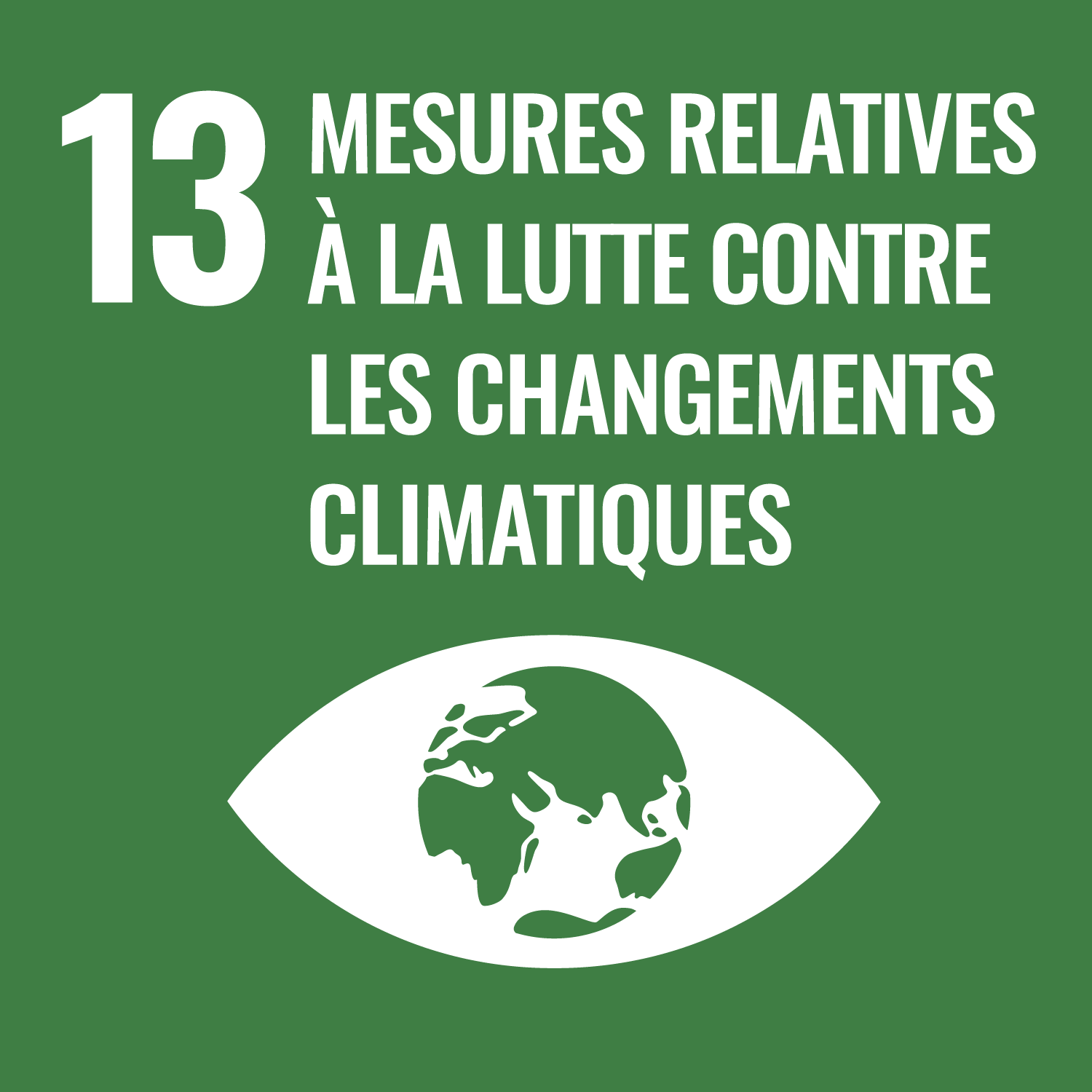This article demonstrates the transformative impact of IP-backed innovation in supporting the following Sustainable Development Goals:
WiseShape: Revolutionizing Winemaking with Eco-Efficient Concrete Tanks
Tatiana Sá Marques, a civil engineer and wine enthusiast, founded WiseShape with the aim of revolutionizing winemaking in Portugal through innovation, technology, and design. Since 2018, WiseShape has been creating eco-friendly concrete tanks for wine fermentation, storage, and aging. The tanks are made from 100 percent recyclable materials, combining aesthetic design and advanced materials engineering to maintain the aroma and flavor of wine. Through its "Zero Carbon" approach, WiseShape is contributing to the sustainability of wine production in Europe.

Wine production in Portugal has a long-standing tradition that dates back centuries. The country is renowned for its diverse and distinctive wine regions, each characterized by unique grape varieties and qualities. Among them, the Douro Valley stands out as one of the most famous.
Tatiana Sá Marques, co-founder and CEO of WiseShape, has always been captivated by her family's vineyard in the Douro region. With a natural talent for mathematics and physics, Sá Marques soon realized that innovation and technology were her true passions, specifically in the field of winemaking. "The vineyards and landscapes of the Douro region are where I first discovered the art of winemaking,” she recalls. “As I grew older, it became clear to me that dedicating my life and profession to these interests, combining my enthusiasm for the wine industry with my expertise in concrete structural design, was the path I was meant to follow.”
During her Civil Engineering doctoral studies at the Instituto Superior Técnico (IST) of the University of Lisbon, in 2017, Sá Marques had the idea of modernizing ancient winemaking techniques through engineering design. Her innovative concept gained recognition when she won an award at the 2017 Smart Rural Contest, a business ideas competition organized by the Pedro Nunes Institute Incubator (IPN), a university spin-off that focuses on fostering innovation and technology transfer.
In collaboration with a fellow engineer and renowned Portuguese oenologist, Carla Ferreira, Sá Marques came up with a novel solution for fermenting and storing wines: one that blends the strength of concrete with the elegance of wine. Within a year, Sá Marques and Ferreira established WiseShape.
"We established WiseShape in 2018, with the aim of promoting sustainability in the European wine industry by blending tradition and innovation. After extensive testing and prototyping, our inaugural product was unveiled at a prestigious wine fair organized by Revista de Vinhos. The wine vat we showcased at the exhibition sold out during the fair," Sá Marques explains.
Sá Marques and her team at WiseShape have attracted the attention of renowned wine producers in Portugal's top wine regions. Many are now clients of the company. "Over the last two years, since our initial product launch, we have gained the trust of leading wine producers in Portugal, including Niepoort, Carm, Symington, Quinta do Sairrão - Sogrape, Alves de Sousa, and others," Sá Marques notes.
WiseShape is now planning to introduce its eco-efficient concrete tanks to the European market. With 65 percent of the world’s wine produced in Europe, the opportunities for growth are significant. "As the wine industry contributes significantly to the revenue of many countries, there are ample opportunities for us, including in major wine-producing regions like Austria, France, Germany, Italy, and Spain," Sá Marques says.
Thanks to her innovative tanks developed in her doctoral project entitled "New Generation of Concrete Wine Tanks” Sá Marques was awarded the 2021 Young Engineer Innovation Prize. She was also nominated for the Founder category by the Portuguese Women in Tech initiative in 2022.
I founded WiseShape in 2018, with the goal of making the European wine industry more sustainable by blending tradition with innovation.
Tatiana Sá Marques, CEO of WiseShape
The benefits of WiseShape’s concrete tanks
WiseShape is revolutionizing age-old wine fermentation and aging processes. Where in the past winemakers used wooden barrels or stainless steel tanks to age their wines, WiseShape has come up with innovative low-tech concrete tanks, which combine the advantages of both oak barrels and stainless steel. “With low-intervention techniques, we enhance every aspect of the wine production process,” Sá Marques explains.
The big advantage that WiseShape’s tanks have over traditional stainless steel solutions lies in their "breathable" nature, which derives from their concrete construction. “Concrete enhances the distinct characteristics of each grape variety and terroir, while stainless steel vats are completely sealed and can't provide these benefits,” Sá Marques explains. The tanks also bring long-recognized benefits of oak barrel fermentation. “Utilizing concrete ensures a wine with a smooth texture akin to that achieved through oak barrel fermentation, amplifying the intensity of fruit color and purity of flavor without introducing any additional aromas or flavors,” Sá Marques notes.
Crafted from recycled concrete with an admixture of siliceous aggregates and cement, WiseShape tanks offer improved chemical and physical resistance compared to traditional concrete tanks. “This makes them easier to maintain, clean, and transport and also ensures their durability and longevity,” says Sá Marques. Moreover, the walls of the WiseShape tank are five times thinner than traditional concrete tanks, meaning fewer materials are needed to make them.
According to Sá Marques, concrete tanks are also ideal for aging wine because of their ability to maintain a stable temperature. "Concrete acts as a natural insulator, reducing energy consumption and preventing temperature fluctuations throughout the storage and aging process," she explains. “WiseShape tanks improve liquid flow, temperature control, and micro-oxygenation, resulting in enhanced efficiency, reduced water consumption, waste, and carbon footprint compared to traditional oak or stainless steel solutions.”

Towards a zero carbon wine industry
The WiseShape eco-efficient tanks are fully aligned with the wine industry’s sustainability goals. “Our goal is to build a production site equipped entirely with electric machinery and to obtain the "Zero Carbon" concrete tank certification," says Sá Marques.
Also, by promoting the uptake and use of eco-efficient tanks, WiseShape is helping wine producers to improve their environmental performance "Europe produces approximately 16.5 billion liters of wine annually, emitting over 1.5 kg of carbon dioxide per liter,” Sá Marques notes. “By using more environmentally friendly wine tanks for fermentation and storage, WiseShape can make a significant positive impact on the carbon footprint of European winemakers."
In line with improving the environmental sustainability of winemaking, WiseShape is collaborating with Inductiva Research Labs to develop new vats that harness the power of artificial intelligence (AI), to optimize product quality and sustainability. "Our aim is to be the first company in the winemaking industry to utilize AI for product optimization. We have already completed a pilot program for shape optimization through Application Programming Interface (API) development, and we will incorporate other parameters into our optimization tool. This innovative approach promises technological, economic, and environmental benefits for the quality of the fermentation process," Sá Marques explains.
WiseShape can make a significant positive impact in reducing the carbon footprint in the winemaking process.
Tatiana Sá Marques, CEO of WiseShape

precise temperature control, smooth micro-oxygenation,
and innovative design. (Photo: Courtesy of WiseShape)
Intellectual property in winemaking
Winemakers rely on intellectual property (IP) protection to add value to their wines, in particular through appellations of origin and geographical indications. They also rely on other IP rights, such as patents and industrial designs, to safeguard the research and development investments they make to improve winemaking processes. In this way, WiseShape is actively using IP rights to protect the innovations surrounding its eco-efficient concrete tanks. "Each design and model of the wine tanks, along with the associated trademarks, has been protected and registered," Sá Marques explains. WiseShape is currently in the process of patenting the individual concrete components of these tanks.
“By registering intellectual and industrial property rights, inventors can showcase the value of their work and contribute to achieving a more sustainable industry.” IP awareness among women inventors and creators is particularly important Sá Marques notes because, "protecting their inventions and creations allows women to actively contribute to society and technological progress, especially in traditionally male-dominated industries.”
Learn more about how WiseShape is committed to innovation to create new and improved versions of its eco-efficient concrete tanks for the European market in their video.

